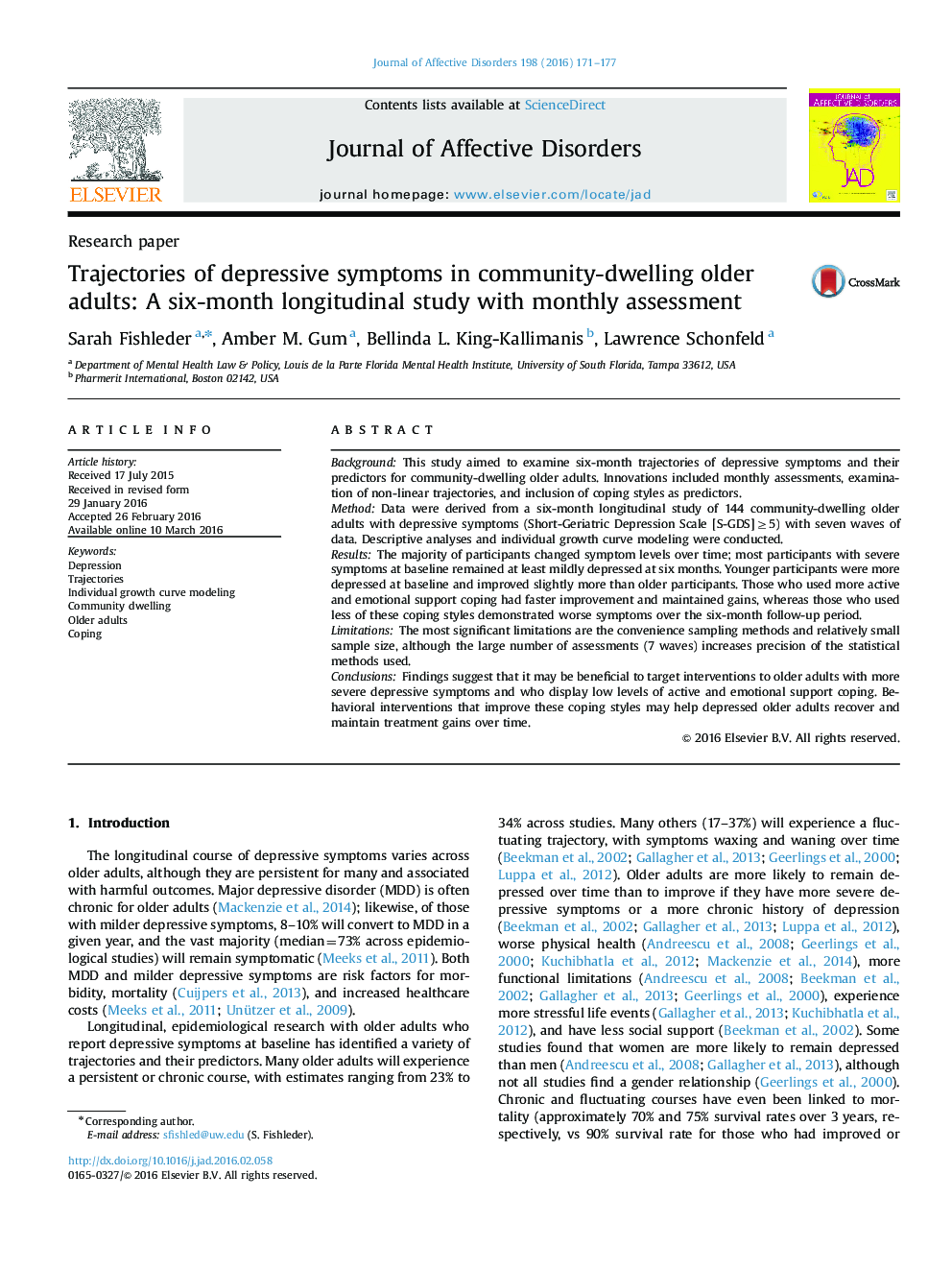| کد مقاله | کد نشریه | سال انتشار | مقاله انگلیسی | نسخه تمام متن |
|---|---|---|---|---|
| 6230211 | 1608127 | 2016 | 7 صفحه PDF | دانلود رایگان |
- Study of community-dwelling older adults with mild-severe depressive symptoms.
- Longitudinal six month follow-up period with monthly assessments.
- Individual growth curve modeling was employed using SPSS 22 mixed model procedure.
- Those using active and emotional support coping had faster, more stable improvement.
- Interventions could target elders showing few of these modifiable coping behaviors.
BackgroundThis study aimed to examine six-month trajectories of depressive symptoms and their predictors for community-dwelling older adults. Innovations included monthly assessments, examination of non-linear trajectories, and inclusion of coping styles as predictors.MethodData were derived from a six-month longitudinal study of 144 community-dwelling older adults with depressive symptoms (Short-Geriatric Depression Scale [S-GDS]â¥5) with seven waves of data. Descriptive analyses and individual growth curve modeling were conducted.ResultsThe majority of participants changed symptom levels over time; most participants with severe symptoms at baseline remained at least mildly depressed at six months. Younger participants were more depressed at baseline and improved slightly more than older participants. Those who used more active and emotional support coping had faster improvement and maintained gains, whereas those who used less of these coping styles demonstrated worse symptoms over the six-month follow-up period.LimitationsThe most significant limitations are the convenience sampling methods and relatively small sample size, although the large number of assessments (7 waves) increases precision of the statistical methods used.ConclusionsFindings suggest that it may be beneficial to target interventions to older adults with more severe depressive symptoms and who display low levels of active and emotional support coping. Behavioral interventions that improve these coping styles may help depressed older adults recover and maintain treatment gains over time.
Journal: Journal of Affective Disorders - Volume 198, 1 July 2016, Pages 171-177
